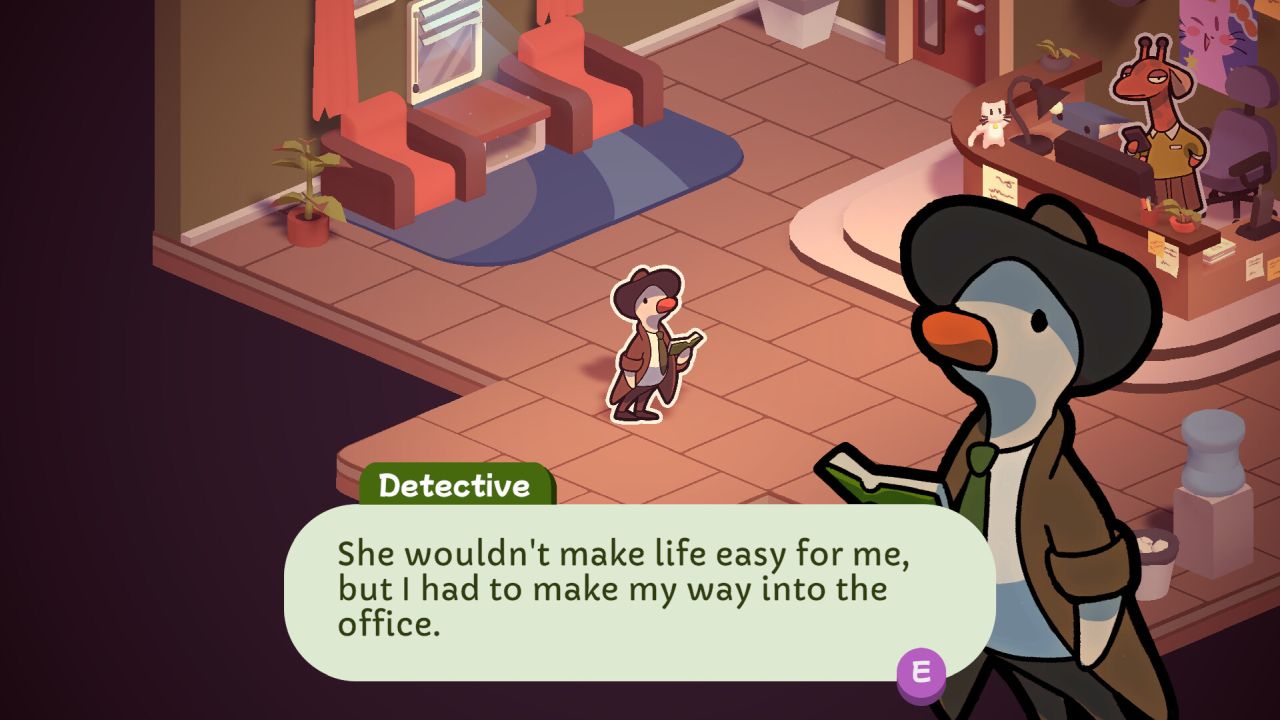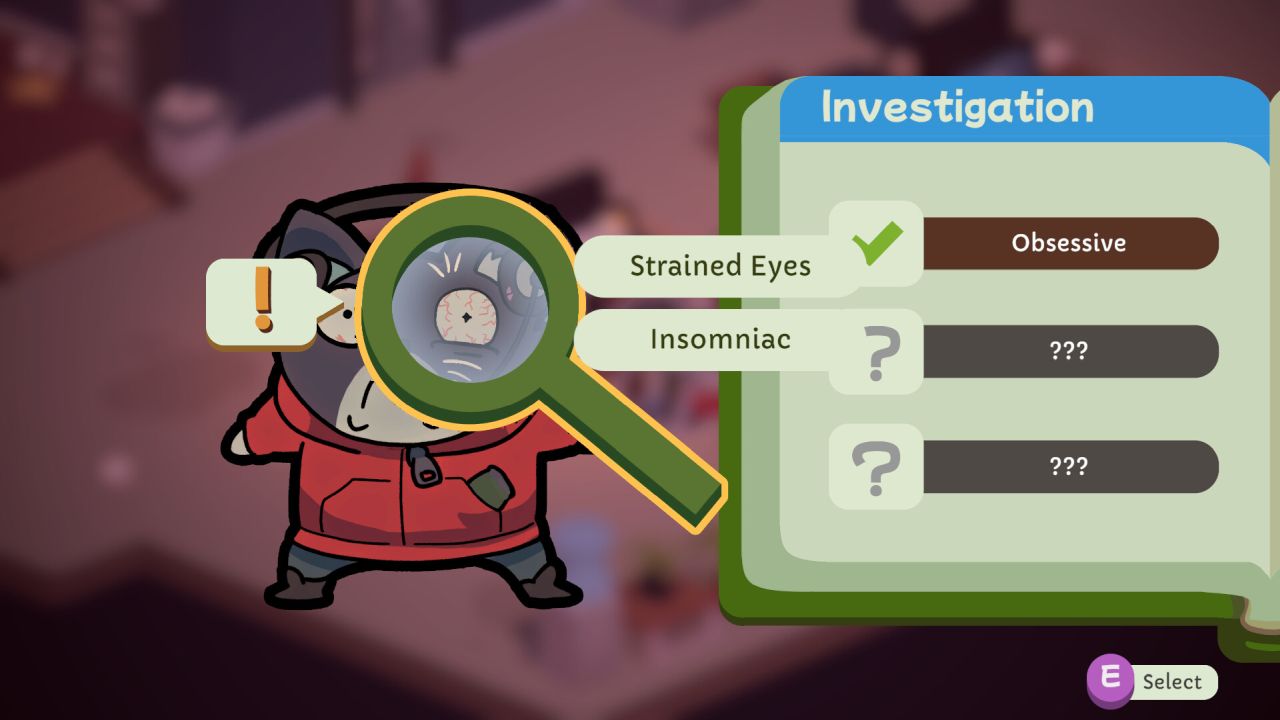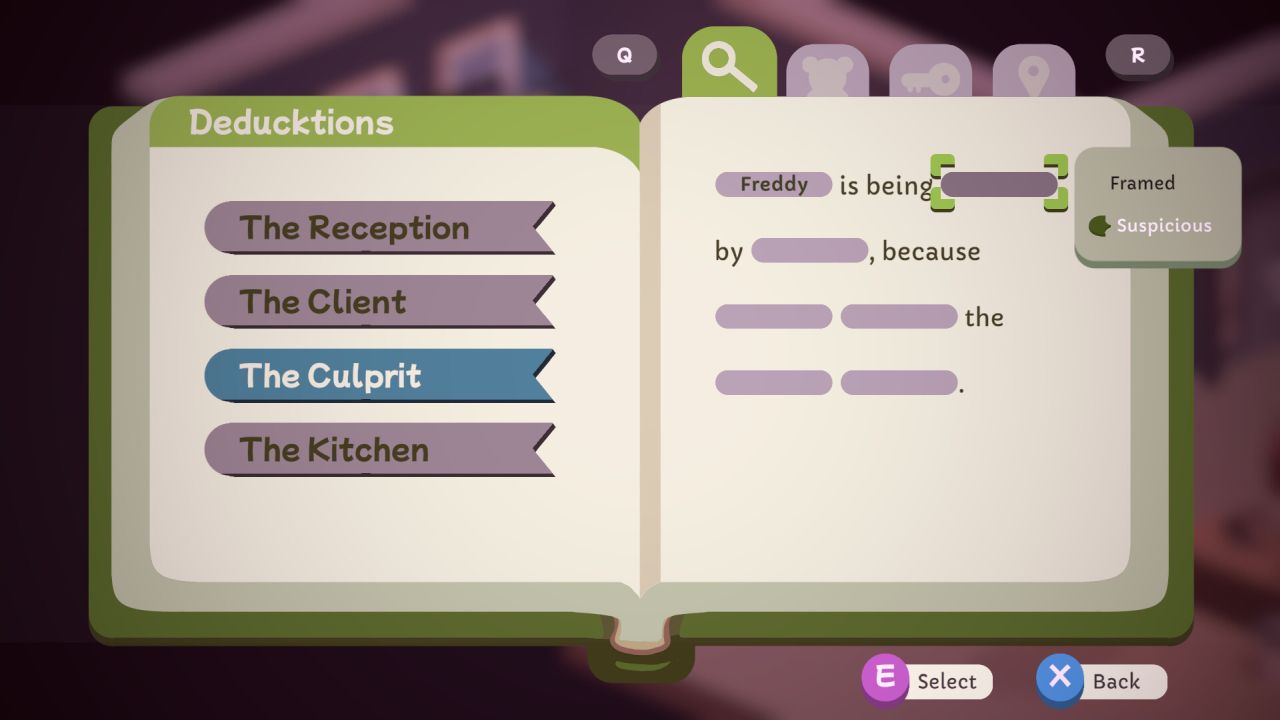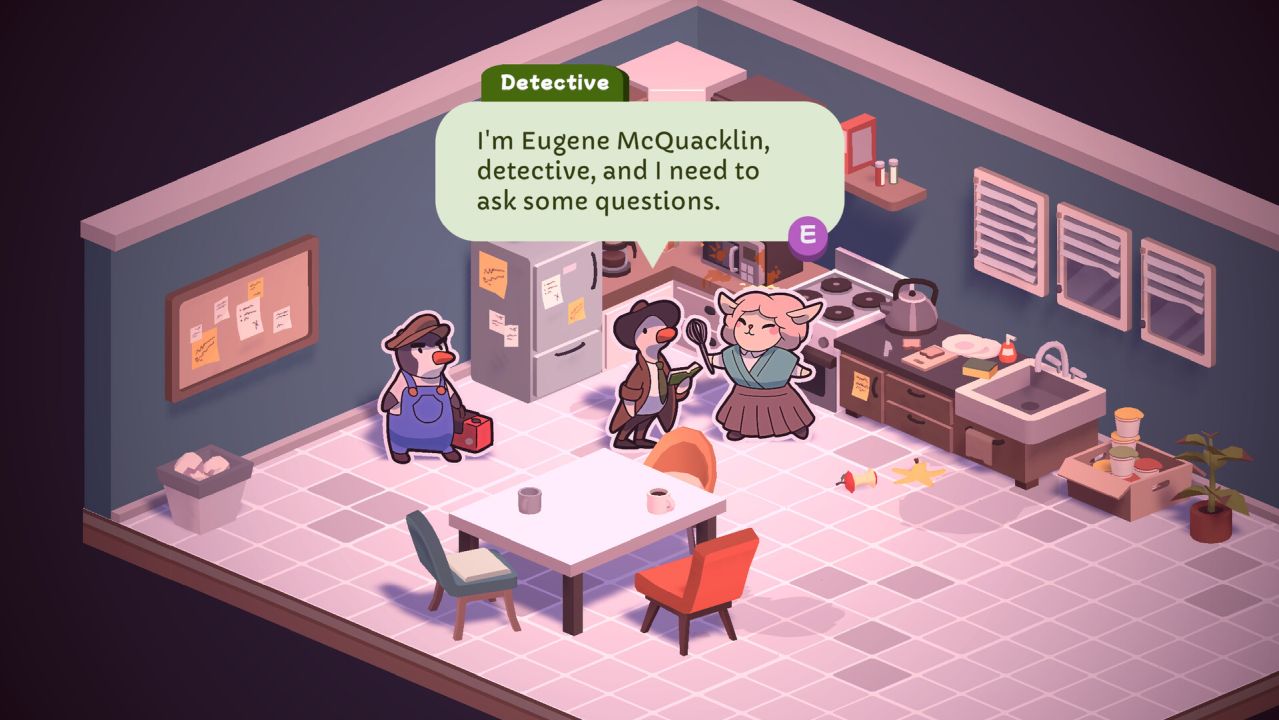Duck Detective: The Secret Salami Review
The indie game market is full of ideas – from truly original creations, to the adaptations and imitations of the big franchises. The kinds of games that have been launched over the past decade have been varied – from bite-sized experiences priced very low and supplemented by microtransactions, to the bigger and bolder titles that approach AA territory. What has been slightly lost in the shuffle, perhaps, are the small and yet worthwhile games at a low price. Many such titles usually skew towards being extremely cheap as to attract the mobile customers, while others find success thanks to their replayability and pleasant design, like the recent Minami Lane. Another newly released title also hopes to enter this category is Duck Detective: The Secret Salami.

The Duck Detective is exactly who players assume the role of, in this slightly noire-like puzzle game. The Duck finds himself short on rent money, and as he dramatically reminiscences about the love for his recently divorced ex-wife, an offer of a case comes in. Looking to escape his drab apartment and forget that he wasted his rent money on bread (because Duck jokes), he accepts and travels to the bus depot company, from where the letter arrived. However, he doesn’t even know who hired him – so his detective skills must be put to immediate use. After arriving at the bus depot, he meets the local staff, where he must deduce who hired him, and who indeed stole the salami from the fridge. But of course, it ends up being more than just a case about a missing workplace lunch.
As the detective, you will have a chance to explore the small office location, and talk to a few characters about the missing meat. In order to squeeze maximum puzzle solving skills from the players, you will have to even go as far as figuring out everyone’s names, because simply asking would be too easy. You will walk around the office, interact with a few items that have an indicator, and speak with the staff. The game automatically keeps track of important words, and they become clues and puzzle pieces to solve the immediate conundrum. In your inventory is a case log that tracks the next puzzle – which is a sentence that is missing words. Your task is to collect all possible words, and then use the correct ones in the given sentence that describes something related to the crime, such as evidence, character relationships, or past actions.

Solving a series of these sentences is at the core of the game, and while it is possible to theoretically brute-force your way initially, the later sentences are missing quite a lot of words, so you do have to have an idea of the case details. While things start off relatively easy and intuitive, the game does run into a bit of trouble in the second half, with far too many words missing and too many viable options. Some leaps of logic and pure guesses are present, as the investigative gameplay loses a bit of steam. There are no penalties for trying many different words to complete a sentence, and the game’s only source of hint is letting you know how many words are wrong – which stops showing a detailed number when you get close, such as less than 3 words. So while enjoyable and fairly original, the puzzle gameplay eventually falls to some typical genre issues.
To collect the clues/words, as mentioned you can interact with a few objects and characters. Looking at things usually brings up a mini-game, where you hover over a character or item with a magnifying glass and look for clues. They take only moments to find, but sometimes you might find yourself stuck a bit longer. The object and character does not display any hints as to what is important about them or what the clue could be, so you are just hovering over their shape until an indicator pops up, and it can be a little finicky. It’s never frustrating though, as the whole game maintains its relaxed and unrushed vibe.

When chatting with characters, you just have an initial linear conversation that you have no control over. The writing is light and makes some occasional humor work well enough. You can then also interact with them by bringing up other co-workers or clue objects, and again this leads to a linear conversation or reaction, and usually another clue added. There is no typical puzzle element to think about who to discuss or which inventory item to use on the characters – the game only lets you bring up topics that are relevant to the character.
The story progresses in a linear fashion, and the game tells you when you’ve collected all possible needed words to solve the next sentence. Sometimes you solve a bunch in a row if you’ve talked to everyone as much as possible, and then another area of the depot may open up, providing another character to speak with. The game even throws in an end-game choice to make you think about who should be arrested for a crime, and shares what other players made similar choices.
The game offers a quite pleasant and colorful 2D art style, with an isometric camera view. You will get to explore the bus depot and chat with its various whacky workers, who are also animals. The game is minimally animated, but it still works quite well – as the Duck waddles along as a sort of character cutout. It may remind players of those character or animal stickers you’d get at the corner store. There are also some brief cutscenes during major story moments, and they are also well put together. But perhaps more surprisingly is that the game offers full voiceover for all characters, which is unexpected for an indie release, and in this very low price range. At just $10 USD, this is certainly a nice looking and great sounding title, with the voice cast putting on a solid showcase for the occasionally whacky conversations, while maintaining a slight noire feel. The background music is also a nice, jazz style composition.

However, the downside of that low price is the game being only about an hour long. This is an obviously short runtime, and while it does have a decent narrative, all you are getting is this one case and the handful of characters. Unlike, say, a puzzle game, there’s not really much replay value here, so those who expect extended gameplay time may be disappointed. There are no collectibles and not many reasons to go back, as the story is linear, apart from the end-game choices.
Still, Duck Detective: The Secret Salami is a pleasant adventure game that looks and, surprisingly, sounds good. There is a silly but entertaining mystery to untangle, and fill-in-the-words core puzzle works well, and is mostly enjoyable for at least the first half. Interacting with other characters and just figuring out their names is basic, and yet surprisingly engaging from a detective perspective. And when the curtain falls and your final deducksions (as the game calls them) are made, this Duck will quack the case, but will still need a ride home from the bus depot.
